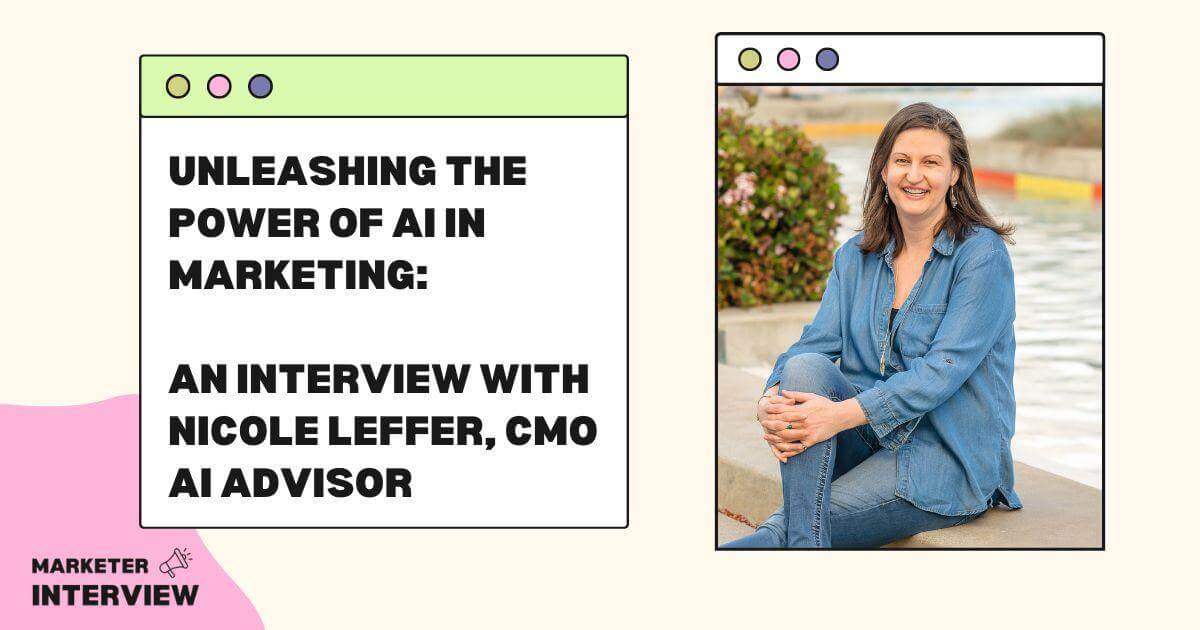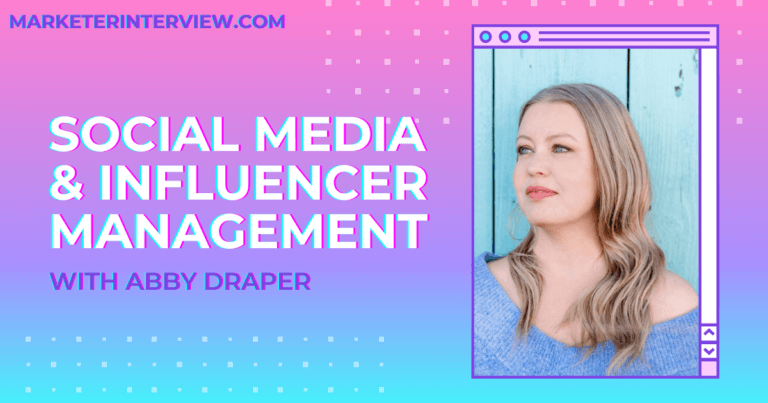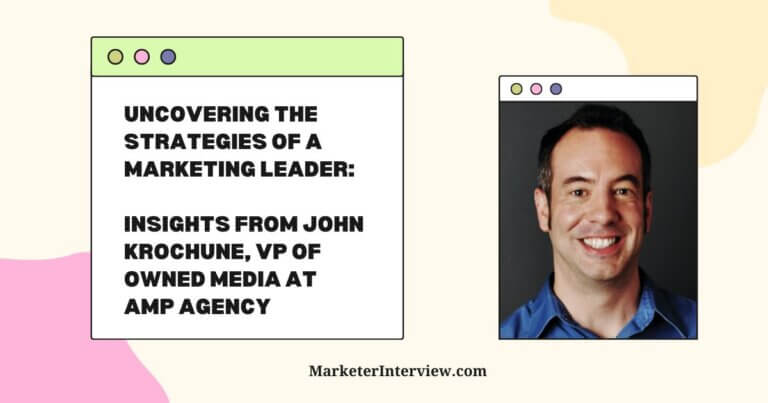Unleashing the Power of AI in Marketing: An Interview with Nicole Leffer, CMO AI Advisor
As technology and marketing continue to converge, marketers who can successfully leverage the latest AI tools and strategies to drive growth and revenue are in high demand.
One such expert is Nicole Leffer, a senior marketing executive with nearly two decades of experience leading and growing innovative B2B and B2C marketing teams. With a passion for strategic innovation, data-driven decision-making, and people-first leadership, Nicole is a true pioneer in AI-driven marketing.
In this interview, we’ll delve into her background, explore her current role as a CMO AI Advisor, and gain insights into her unique approach to marketing leadership.
Contents
- 1 Can you tell us about your background and how you got started in marketing?
- 2 What motivated you to specialize in tech marketing, and how did you develop your expertise in leveraging AI in marketing?
- 3 What is the biggest challenge facing tech marketing leaders today, and how do you propose tackling it?
- 4 What are the essential qualities of a successful marketing leader, and how do you cultivate those qualities in yourself and your team?
- 5 How do you balance the need for data-driven decision-making with the importance of creativity and intuition in marketing?
- 6 Can you walk us through a project where you utilized AI technology to drive marketing efficiency and results, and what were the outcomes?
- 7 How do you ensure that your marketing messaging and positioning resonate with diverse audiences, and what steps do you take to promote diversity, equity, and inclusion in your team?
- 8 How do you approach experimental testing in your marketing strategy, and what methods do you use to evaluate success?
- 9 Can you describe a time when you had to navigate a particularly challenging marketing situation, and how did you handle it?
- 10 What trends or developments do you see shaping the future of tech marketing, and how are you preparing your team to stay ahead of the curve?
Can you tell us about your background and how you got started in marketing?
My marketing journey began in 2004 when I co-founded an e-commerce chocolate ingredients company in college.
Wearing the co-CEO and CMO hats, I quickly became an expert in digital marketing and e-commerce. Over 15 years, we grew the business to over $13 million in cumulative revenue and even ranked among the top 1000 internet retail companies in the US for a few years.
In 2020, I pivoted to marketing consulting before joining a B2B SaaS company in 2021 as their head of marketing. Now, I’m on a mission to help CMOs and their teams level up with AI skills and strategies, blending my passion for marketing and cutting-edge technology.
What motivated you to specialize in tech marketing, and how did you develop your expertise in leveraging AI in marketing?
My journey into tech marketing began with my e-commerce company, which felt more like a tech company than a food retailer.
In the early days, we had to build our e-commerce site from scratch, much like a SaaS product. As a result, I managed engineers, developers, and web designers over the years – a role more akin to running a tech company than selling chocolate chips.
Transitioning to tech marketing was a natural fit, and my interest in AI emerged during my tenure as Head of Marketing. Eager to explore the potential of AI tools, I integrated them into our team’s workflow and dove headfirst into learning their ins and outs.
As I taught my team to harness the power of AI, I continued expanding my knowledge in the field. Recognizing its potential, I immersed myself in the world of AI, exploring various tools and their applications in marketing.
The later release of ChatGPT marked a turning point, and I was among the early adopters. This passion for AI-driven marketing solutions has fueled my expertise and success in the tech marketing space.
What is the biggest challenge facing tech marketing leaders today, and how do you propose tackling it?
The most significant challenge I observe for tech marketing leaders is grasping the seismic shift in marketing due to AI technology.
Many have limited experience with these tools and need help understanding their potential, identifying the right tools and strategies, and implementing AI responsibly and ethically to create unique, brand-aligned content.
To tackle this, I recommend that marketing leaders:
- Learn the possibilities: Understand what AI can do for your marketing efforts.
- Experiment: Try different tools and strategies to find what works best for your brand.
- Embrace AI without fear: Acknowledge that AI is here to stay and adapt your approach accordingly.
- Upskill your team: Invest in training to ensure your team stays ahead of the curve.
By embracing AI and its potential, tech marketing leaders can remain competitive and thrive in this rapidly evolving landscape.
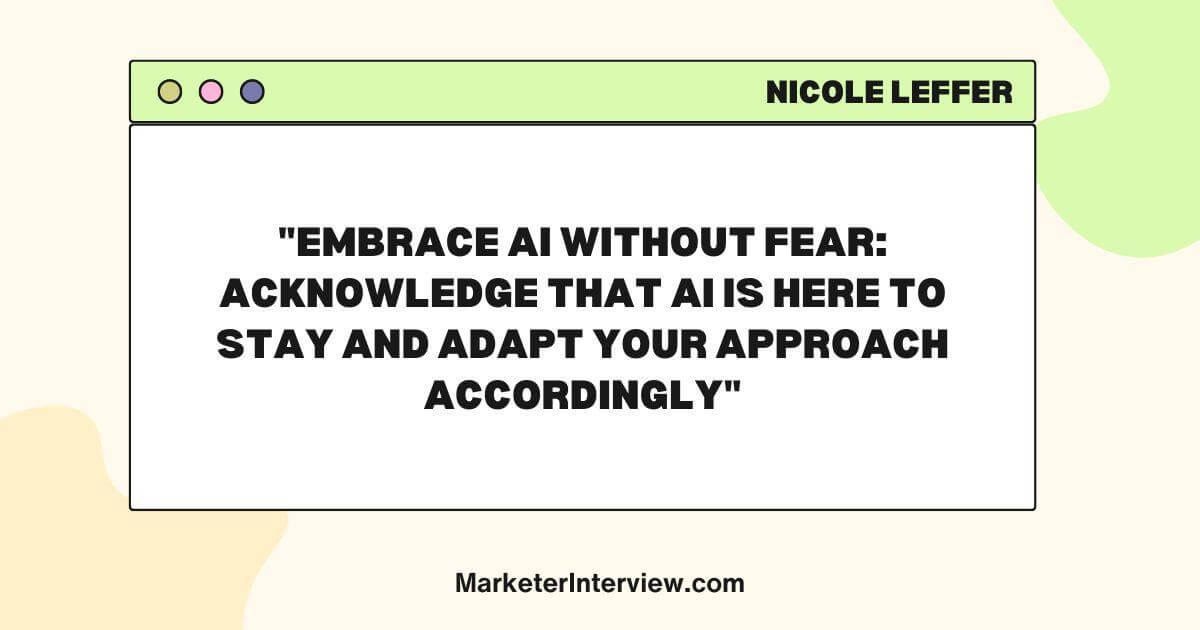
What are the essential qualities of a successful marketing leader, and how do you cultivate those qualities in yourself and your team?
The essential qualities of a successful marketing leader are empathy, adaptability, and being a good teacher.
Empathy allows leaders to understand their team members’ perspectives and lead effectively amidst rapid changes. Adaptability and innovation help leaders stay ahead of the curve and harness new technological potential. Being a good teacher, coach, and guide is crucial for navigating the fast-paced marketing landscape and empowering the team.
To cultivate these qualities, start with self-awareness and personal growth. This enhances empathy and helps avoid projecting your own experiences onto your team. In addition, active listening is vital for understanding and adapting to your team’s needs.
Embrace open-mindedness and be receptive to upward feedback, allowing your team to help you improve. Request feedback gracefully and without defensiveness, as it fosters a culture of growth and learning.
How do you balance the need for data-driven decision-making with the importance of creativity and intuition in marketing?
Combining data, creativity, and intuition is the secret to achieving this balance.
Begin by diving into the data to identify areas of opportunity, growth, and improvement. As a highly intuitive marketer, I rely on intuition to steer me toward the most relevant data.
With opportunities pinpointed, it’s time to unleash your creativity and intuition to ideate A/B tests or fresh campaigns. While your creative instincts may guide your hypotheses, always let data have the final say in determining success.
This ensures you don’t become emotionally attached to an idea solely based on its creative or intuitive appeal. Instead, the perfect balance is achieved by harmoniously blending data with creativity and intuition while keeping emotions in check.
Can you walk us through a project where you utilized AI technology to drive marketing efficiency and results, and what were the outcomes?
Sure! It’s hard to pick just one project, as I now use AI technology in virtually all aspects of my marketing. One of my favorite daily AI applications is creating engaging LinkedIn content. Here’s how it works:
- I record a voice memo detailing my ideas when inspiration strikes (usually while I’m not working).
- I email the voice memo to myself and, when back at my computer, I transcribe it using the Whisper app, which is part of OpenAI’s playground.
- Next, I input the transcription into ChatGPT with a prompt to transform it into a captivating LinkedIn post.
- ChatGPT provides an initial draft that requires only minor edits before posting.
This efficient process has led to skyrocketing engagement rates, more consistent posting, and increased follower growth on LinkedIn. AI technology has truly revolutionized the way I approach content creation and marketing.
How do you ensure that your marketing messaging and positioning resonate with diverse audiences, and what steps do you take to promote diversity, equity, and inclusion in your team?
I’m thrilled you asked this question, as it’s a subject near and dear to my heart. To create messaging that resonates with diverse audiences, I follow a few key strategies:
1. Acknowledge and address personal biases: It’s crucial to be aware of your implicit biases and avoid writing from a majority-only perspective.
2. Use inclusive language and imagery: Avoid using references or imagery that cater only to specific groups. Ensure you’re not reinforcing stereotypes or biases through your language or chosen images.
3. Assemble a diverse team: A diverse marketing team with varied backgrounds will produce content that appeals to a broader audience. Encourage open communication and actively seek feedback, even if it’s challenging to hear.
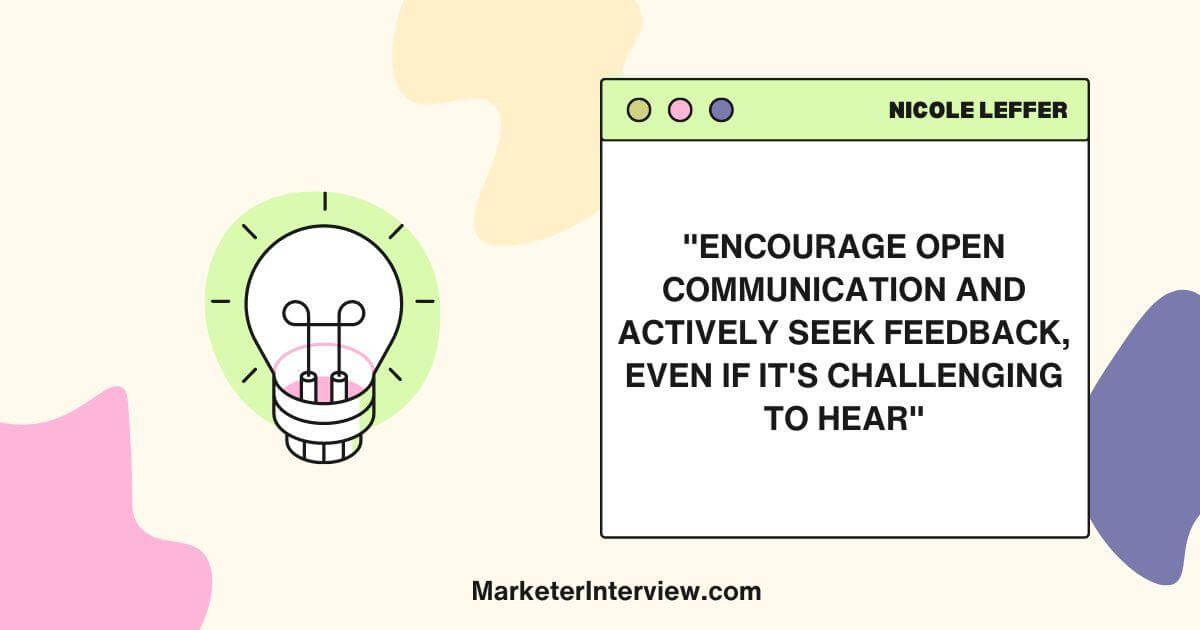
To promote diversity, equity, and inclusion within the team, I focus on the following:
1. Inclusive hiring practices: Be open-minded about candidates’ professional backgrounds, understanding that skills can be transferable across industries.
2. Encourage creativity and diverse ideas: A team with members from various industries and personal backgrounds will be more innovative than one where everyone has the same perspective.
3. Create an inclusive environment: Make sure everyone’s voice is heard, their ideas are recognized and accredited, and there’s no space for belittling or people getting defensive when an unconscious bias is brought to attention (and this includes you not getting defensive as a leader).
How do you approach experimental testing in your marketing strategy, and what methods do you use to evaluate success?
I firmly believe in the power of A/B and multivariate testing, a mindset ingrained in my e-commerce background. Therefore, I prioritize testing everything in my marketing strategy – from paid media, such as pay-per-click advertising and paid social, to landing pages and conversion rate optimization.
To evaluate success, I focus on revenue as the ultimate metric. It’s crucial to work backward from revenue and determine the closest indicator of success for each marketing element. Sometimes, it might be email opt-in signups – but only if they convert.
Recently, I’ve been leveraging AI to generate A/B test variations quickly. By inputting an initial idea and audience or ICP description, I receive multiple content options to test against each other.
Several years ago, I faced a challenging situation at my e-commerce company.
We worked on a reactivation campaign for inactive customers, leveraging data to send automated recommendations through our e-commerce platform. The goal was to avoid sending these emails through our email marketing system to prevent potential issues.
Unfortunately, our developers inadvertently included a spam report and unsubscribe code from our email marketing system. As a result, we received numerous spam reports and got banned by our email service provider just days before Black Friday and Cyber Monday!
With limited customer support from our provider, I had two options: try to get un-blacklisted or migrate to a new platform.
I decided to move to Klaviyo, and it was a blessing in disguise. With its superior features and customization options, we had our most successful Black Friday and Cyber Monday ever. Despite the stress and challenges, this experience taught me the importance of quick decision-making and adaptability in marketing.
What trends or developments do you see shaping the future of tech marketing, and how are you preparing your team to stay ahead of the curve?
AI undeniably stands at the forefront of tech marketing’s future. I’m focusing on skill development and strategy training to equip marketing teams for this new era. It’s crucial to master the current tools and cultivating transferable skills and strategies for whichever tools emerge as game-changers is vital.
The key is learning to communicate effectively with these tools and deploying versatile strategies that can act as catalysts for exceptional marketing results. So, let’s embrace AI, stay adaptable, and prepare to ride the wave of marketing innovation.
